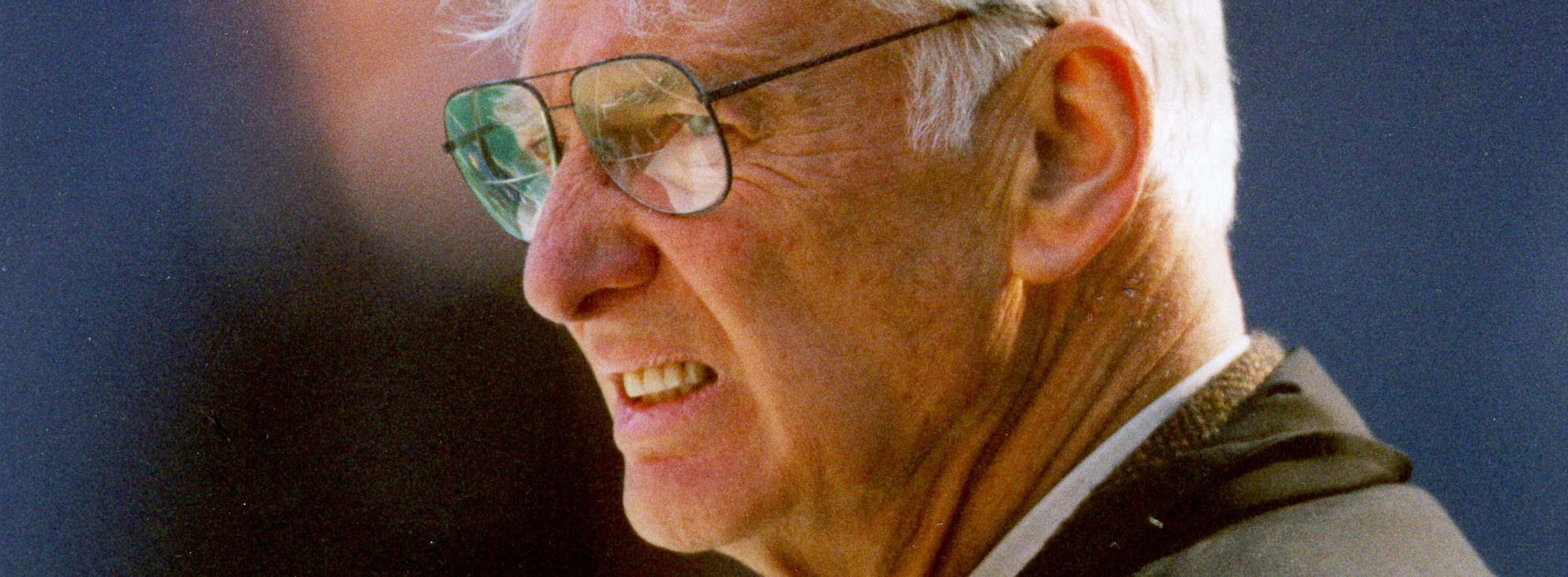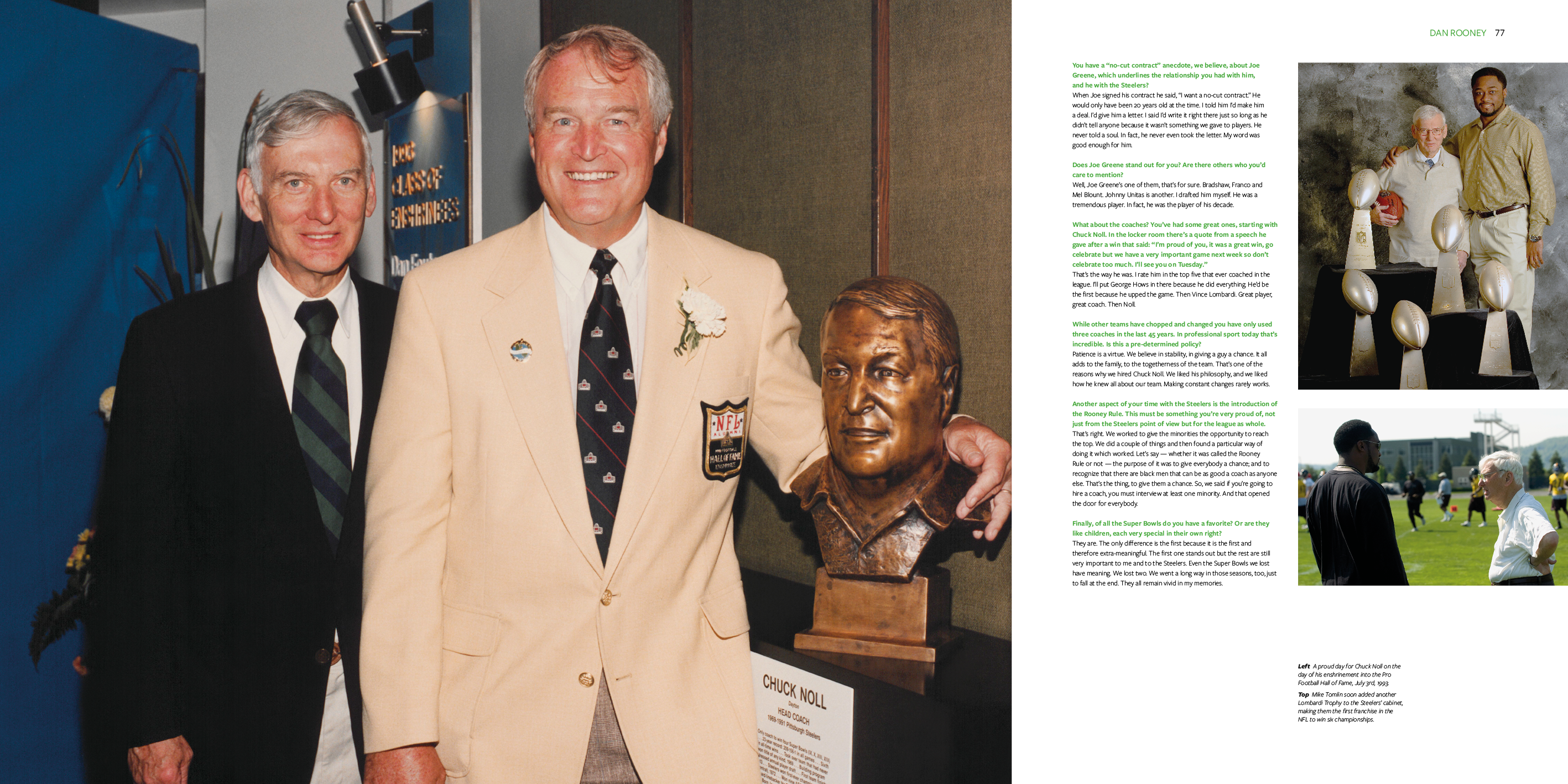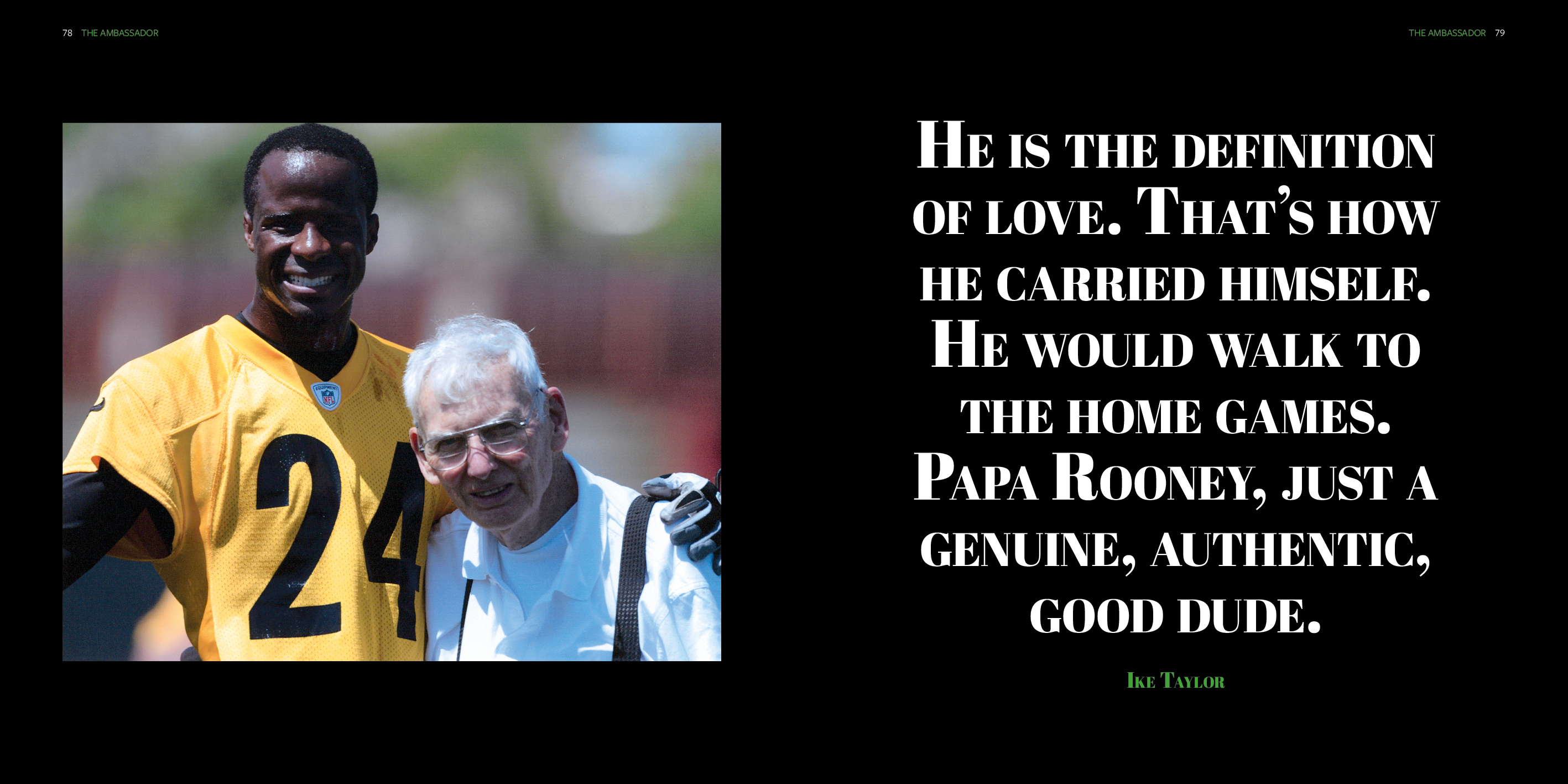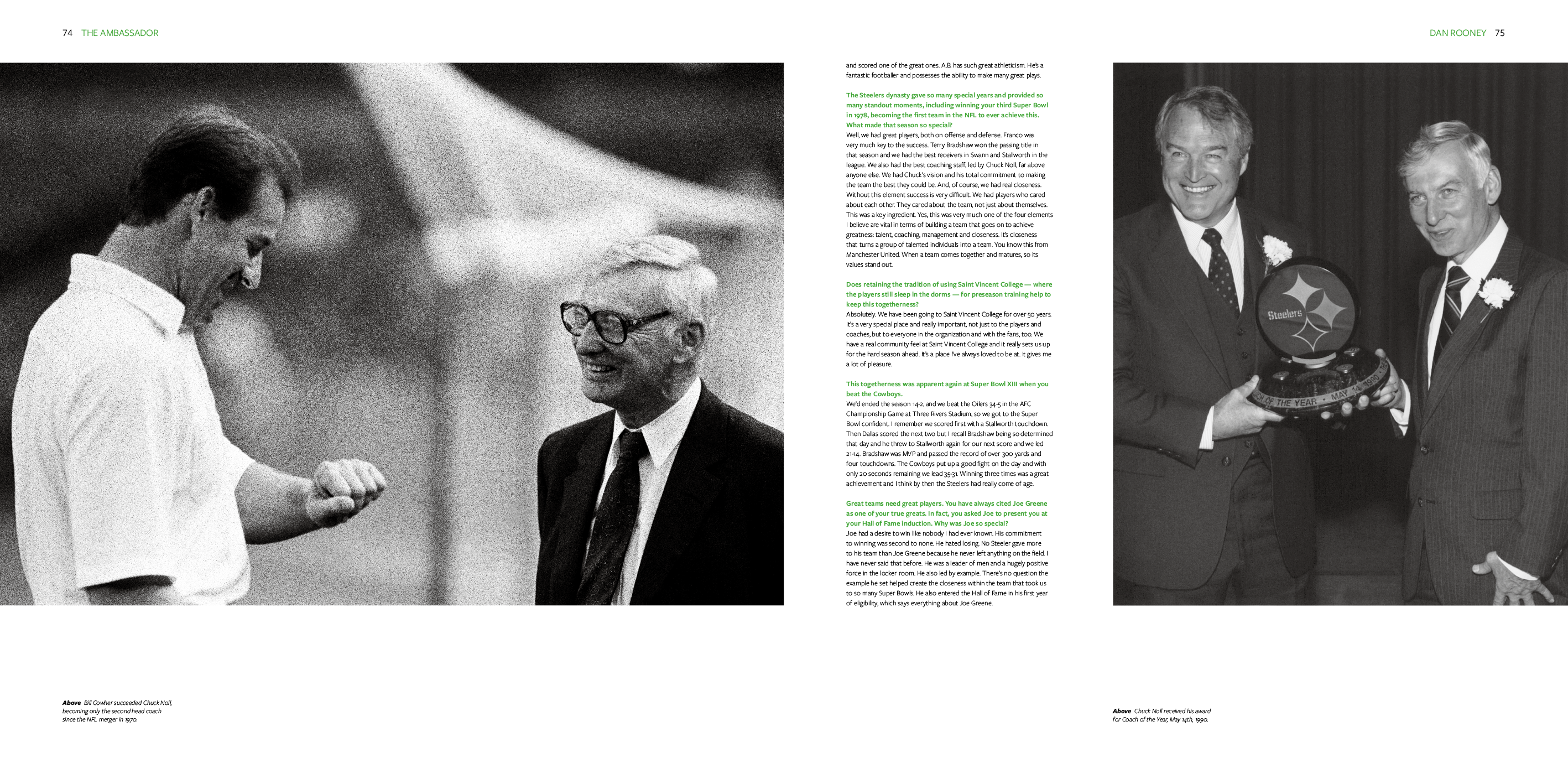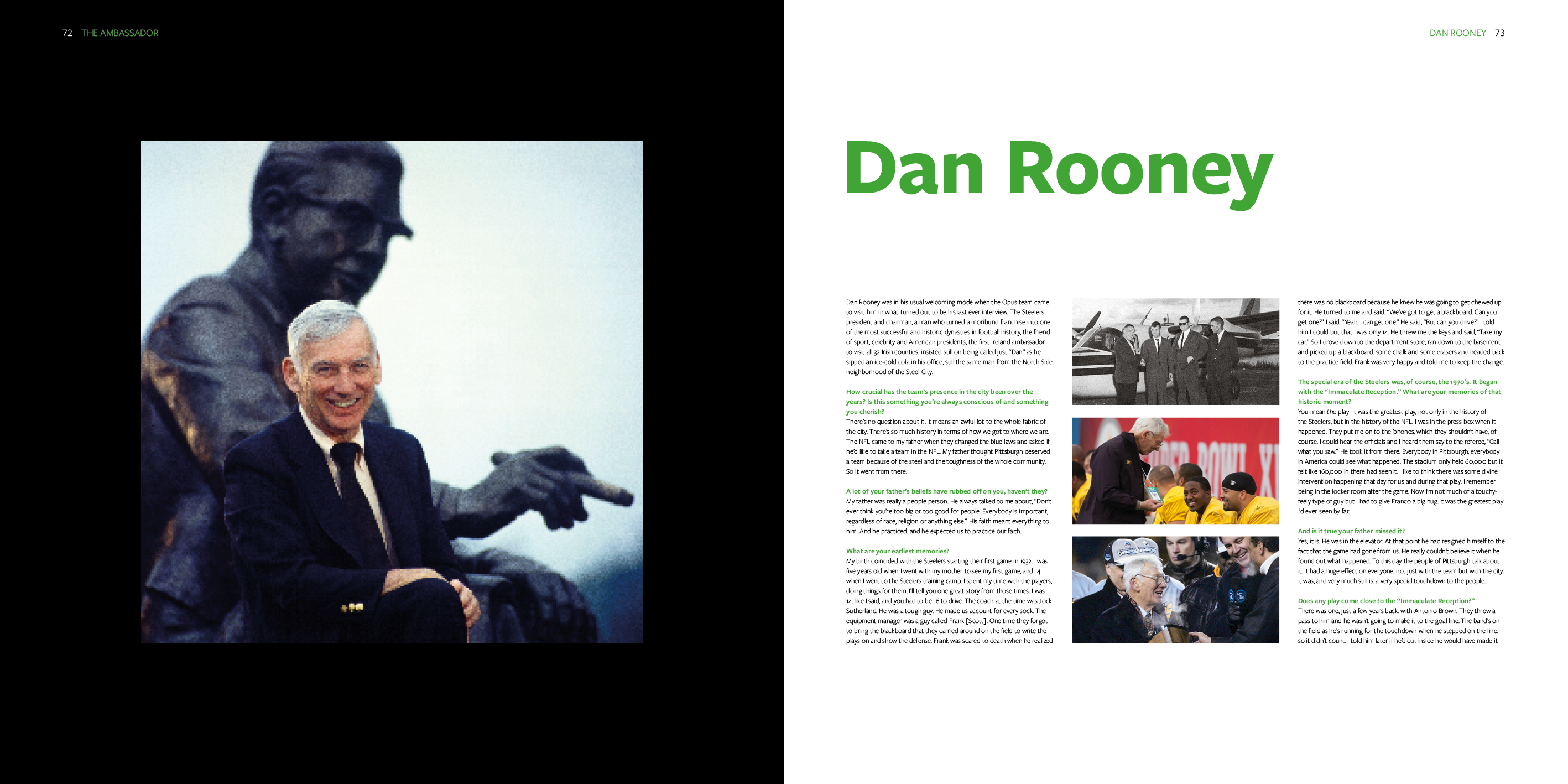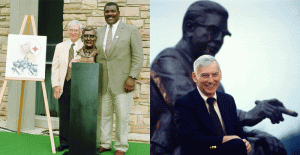Dan Rooney was in his usual welcoming mode when the Opus team came to visit him in what turned out to be his last ever interview.
The Steelers president and chairman, a man who turned a moribund franchise into one of the most successful and historic dynasties in football history, the friend of sport, celebrity and American presidents, the first Ireland ambassador to visit all 32 Irish counties, insisted still on being called just “Dan” as he sipped an ice-cold cola in his office, still the same man from the North Side neighborhood of the Steel City.
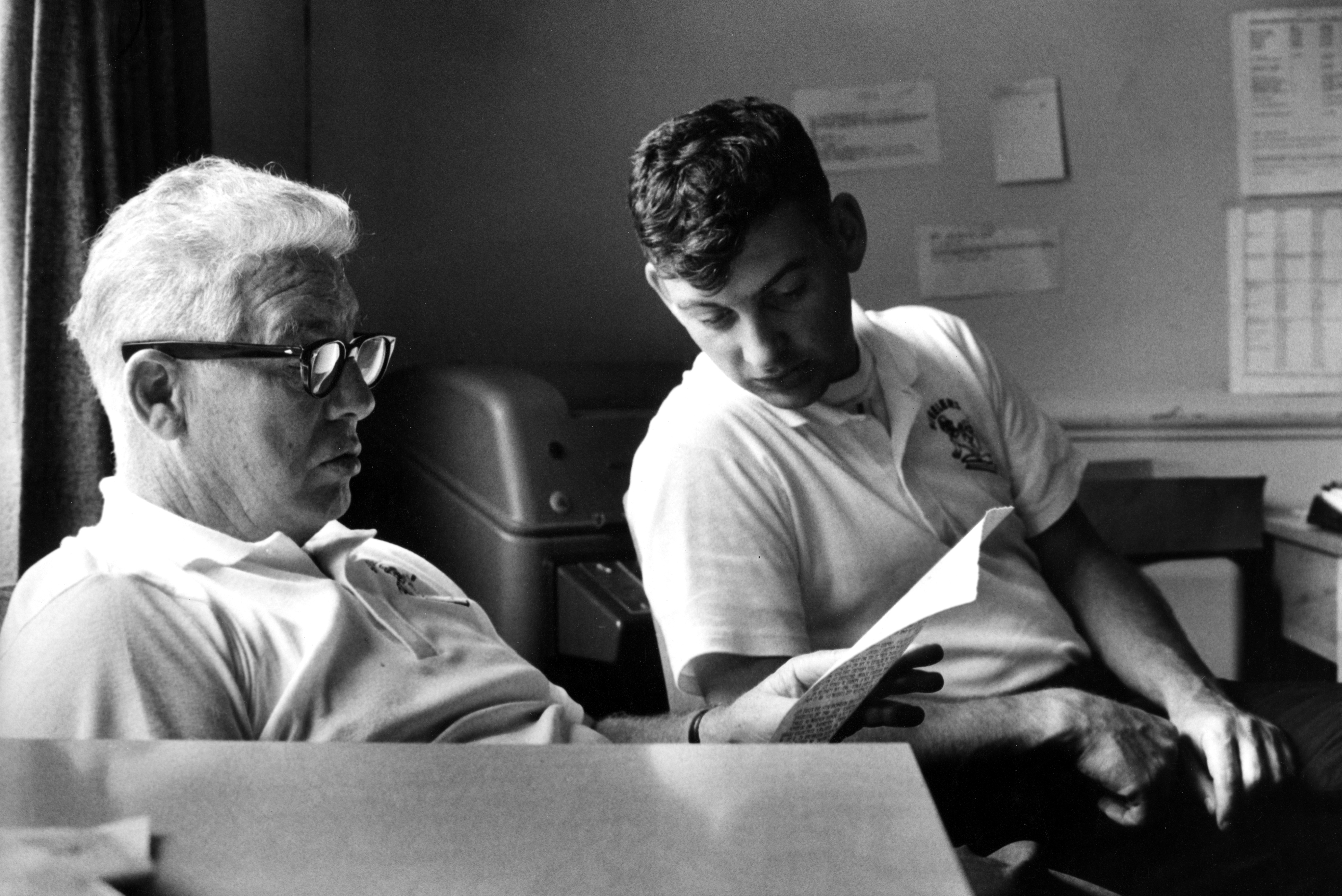
How crucial has the team’s presence in the city been over the years? Is this something you’re always conscious of and something you cherish?
There’s no question about it. It means an awful lot to the whole fabric of the city. There’s so much history in terms of how we got to where we are. The NFL came to my father when they changed the blue laws and asked if he’d like to take a team in the NFL. My father thought Pittsburgh deserved a team because of the steel and the toughness of the whole community. So it went from there.
A lot of your father’s beliefs have rubbed off on you, haven’t they?
My father was really a people person. He always talked to me about, “Don’t ever think you’re too big or too good for people. Everybody is important, regardless of race, religion or anything else.” His faith meant everything to him. And he practiced, and he expected us to practice our faith.
What are your earliest memories?
My birth coincided with the Steelers starting their first game in 1932. I was five years old when I went with my mother to see my first game, and 14 when I went to the Steelers training camp. I spent my time with the players, doing things for them. I’ll tell you one great story from those times. I was 14, like I said, and you had to be 16 to drive. The coach at the time was Jock Sutherland. He was a tough guy. He made us account for every sock. The equipment manager was a guy called Frank [Scott]. One time they forgot to bring the blackboard that they carried around on the field to write the plays on and show the defense. Frank was scared to death when he realized there was no blackboard because he knew he was going to get chewed up for it. He turned to me and said, “We’ve got to get a blackboard. Can you get one?” I said, “Yeah, I can get one.” He said, “But can you drive?” I told him I could but that I was only 14. He threw me the keys and said, “Take my car.” So I drove down to the department store, ran down to the basement and picked up a blackboard, some chalk and some erasers and headed back to the practice field. Frank was very happy and told me to keep the change.
The special era of the Steelers was, of course, the 1970’s. It began with the “Immaculate Reception.” What are your memories of that historic moment?
You mean the play! It was the greatest play, not only in the history of the Steelers, but in the history of the NFL. I was in the press box when it happened. They put me on to the ’phones, which they shouldn’t have, of course. I could hear the officials and I heard them say to the referee, “Call what you saw.” He took it from there. Everybody in Pittsburgh, everybody in America could see what happened. The stadium only held 60,000 but it felt like 160,000 in there had seen it. I like to think there was some divine intervention happening that day for us and during that play. I remember being in the locker room after the game. Now I’m not much of a touchy-feely type of guy but I had to give Franco a big hug. It was the greatest play I’d ever seen by far.
And is it true your father missed it?
Yes, it is. He was in the elevator. At that point he had resigned himself to the fact that the game had gone from us. He really couldn’t believe it when he found out what happened. To this day the people of Pittsburgh talk about it. It had a huge effect on everyone, not just with the team but with the city. It was, and very much still is, a very special touchdown to the people.
Does any play come close to the “Immaculate Reception?”
There was one, just a few years back, with Antonio Brown. They threw a pass to him and he wasn’t going to make it to the goal line. The band’s on the field as he’s running for the touchdown when he stepped on the line, so it didn’t count. I told him later if he’d cut inside he would have made it and scored one of the great ones. A.B. has such great athleticism. He’s a fantastic footballer and possesses the ability to make many great plays.
The Steelers dynasty gave so many special years and provided so many standout moments, including winning your third Super Bowl in 1978, becoming the first team in the NFL to ever achieve this. What made that season so special?
Well, we had great players, both on offense and defense. Franco was very much key to the success. Terry Bradshaw won the passing title in that season and we had the best receivers in Swann and Stallworth in the league. We also had the best coaching staff, led by Chuck Noll, far above anyone else. We had Chuck’s vision and his total commitment to making the team the best they could be. And, of course, we had real closeness. Without this element success is very difficult. We had players who cared about each other. They cared about the team, not just about themselves. This was a key ingredient. Yes, this was very much one of the four elements I believe are vital in terms of building a team that goes on to achieve greatness: talent, coaching, management and closeness. It’s closeness that turns a group of talented individuals into a team. You know this from Manchester United. When a team comes together and matures, so its values stand out.
We had players who cared about each other. They cared about the team, not just about themselves. This was a key ingredient.
Does retaining the tradition of using Saint Vincent College — where the players still sleep in the dorms — for preseason training help to keep this togetherness?
Absolutely. We have been going to Saint Vincent College for over 50 years. It’s a very special place and really important, not just to the players and coaches, but to everyone in the organization and with the fans, too. We have a real community feel at Saint Vincent College and it really sets us up for the hard season ahead. It’s a place I’ve always loved to be at. It gives me a lot of pleasure.
This togetherness was apparent again at Super Bowl XIII when you beat the Cowboys.
We’d ended the season 14-2, and we beat the Oilers 34-5 in the AFC Championship Game at Three Rivers Stadium, so we got to the Super Bowl confident. I remember we scored first with a Stallworth touchdown. Then Dallas scored the next two but I recall Bradshaw being so determined that day and he threw to Stallworth again for our next score and we led 21-14. Bradshaw was MVP and passed the record of over 300 yards and four touchdowns. The Cowboys put up a good fight on the day and with only 20 seconds remaining we lead 35-31. Winning three times was a great achievement and I think by then the Steelers had really come of age.
Great teams need great players. You have always cited Joe Greene as one of your true greats. In fact, you asked Joe to present you at your Hall of Fame induction. Why was Joe so special?
Joe had a desire to win like nobody I had ever known. His commitment to winning was second to none. He hated losing. No Steeler gave more to his team than Joe Greene because he never left anything on the field. I have never said that before. He was a leader of men and a hugely positive force in the locker room. He also led by example. There’s no question the example he set helped create the closeness within the team that took us to so many Super Bowls. He also entered the Hall of Fame in his first year of eligibility, which says everything about Joe Greene.
You have a “no-cut contract” anecdote, we believe, about Joe Greene, which underlines the relationship you had with him,
and he with the Steelers?
When Joe signed his contract he said, “I want a no-cut contract.” He would only have been 20 years old at the time. I told him I’d make him a deal. I’d give him a letter. I said I’d write it right there just so long as he didn’t tell anyone because it wasn’t something we gave to players. He never told a soul. In fact, he never even took the letter. My word was good enough for him.
Does Joe Greene stand out for you? Are there others who you’d care to mention?
Well, Joe Greene’s one of them, that’s for sure. Bradshaw, Franco and Mel Blount. Johnny Unitas is another. I drafted him myself. He was a tremendous player. In fact, he was the player of his decade.
What about the coaches? You’ve had some great ones, starting with Chuck Noll. In the locker room there’s a quote from a speech he gave after a win that said: “I’m proud of you, it was a great win, go celebrate but we have a very important game next week so don’t celebrate too much. I’ll see you on Tuesday.”
That’s the way he was. I rate him in the top five that ever coached in the league. I’ll put George Hows in there because he did everything. He’d be the first because he upped the game. Then Vince Lombardi. Great player, great coach. Then Noll.
While other teams have chopped and changed you have only used three coaches in the last 45 years. In professional sport today that’s incredible. Is this a pre-determined policy?
Patience is a virtue. We believe in stability, in giving a guy a chance. It all adds to the family, to the togetherness of the team. That’s one of the reasons why we hired Chuck Noll. We liked his philosophy, and we liked how he knew all about our team. Making constant changes rarely works.
Another aspect of your time with the Steelers is the introduction of the Rooney Rule. This must be something you’re very proud of, not just from the Steelers point of view but for the league as whole.
That’s right. We worked to give the minorities the opportunity to reach the top. We did a couple of things and then found a particular way of doing it which worked. Let’s say — whether it was called the Rooney Rule or not — the purpose of it was to give everybody a chance; and to recognize that there are black men that can be as good a coach as anyone else. That’s the thing, to give them a chance. So, we said if you’re going to hire a coach, you must interview at least one minority. And that opened the door for everybody.
Finally, of all the Super Bowls do you have a favorite? Or are they like children, each very special in their own right?
They are. The only difference is the first because it is the first and therefore extra-meaningful. The first one stands out but the rest are still very important to me and to the Steelers. Even the Super Bowls we lost have meaning. We lost two. We went a long way in those seasons, too, just to fall at the end. They all remain vivid in my memories.
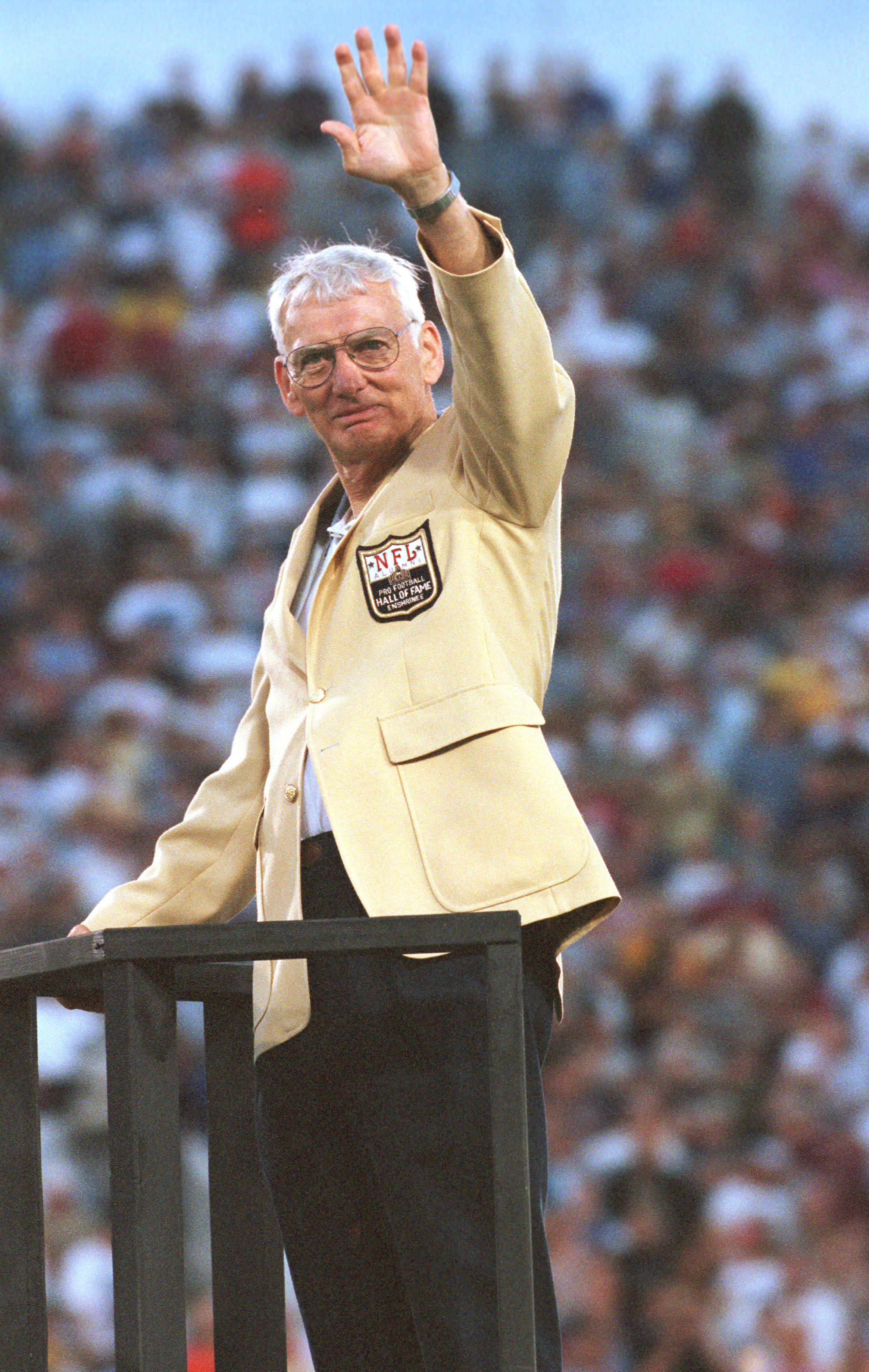
Extract of interview has been taken from The Pittsburgh Steelers Opus

